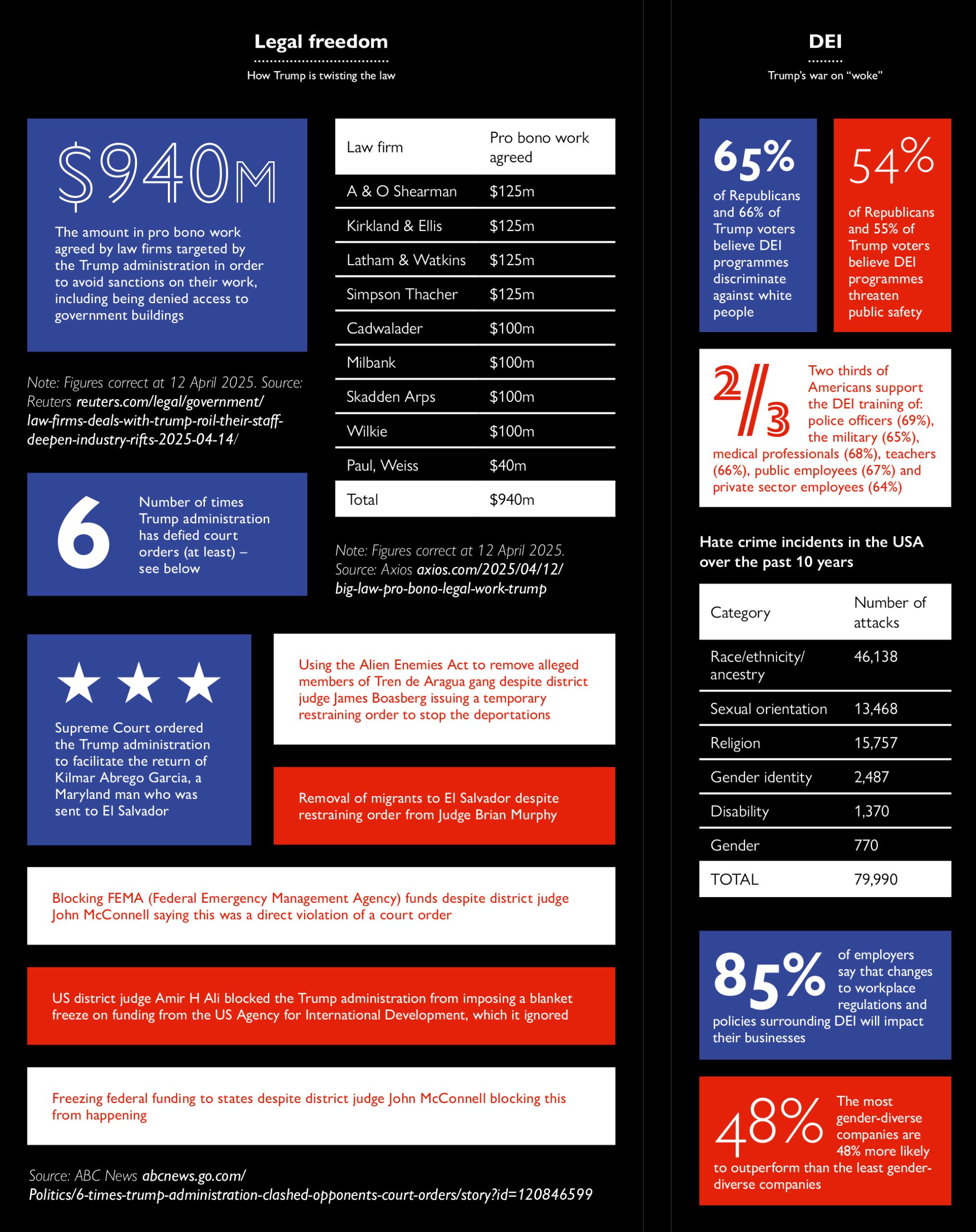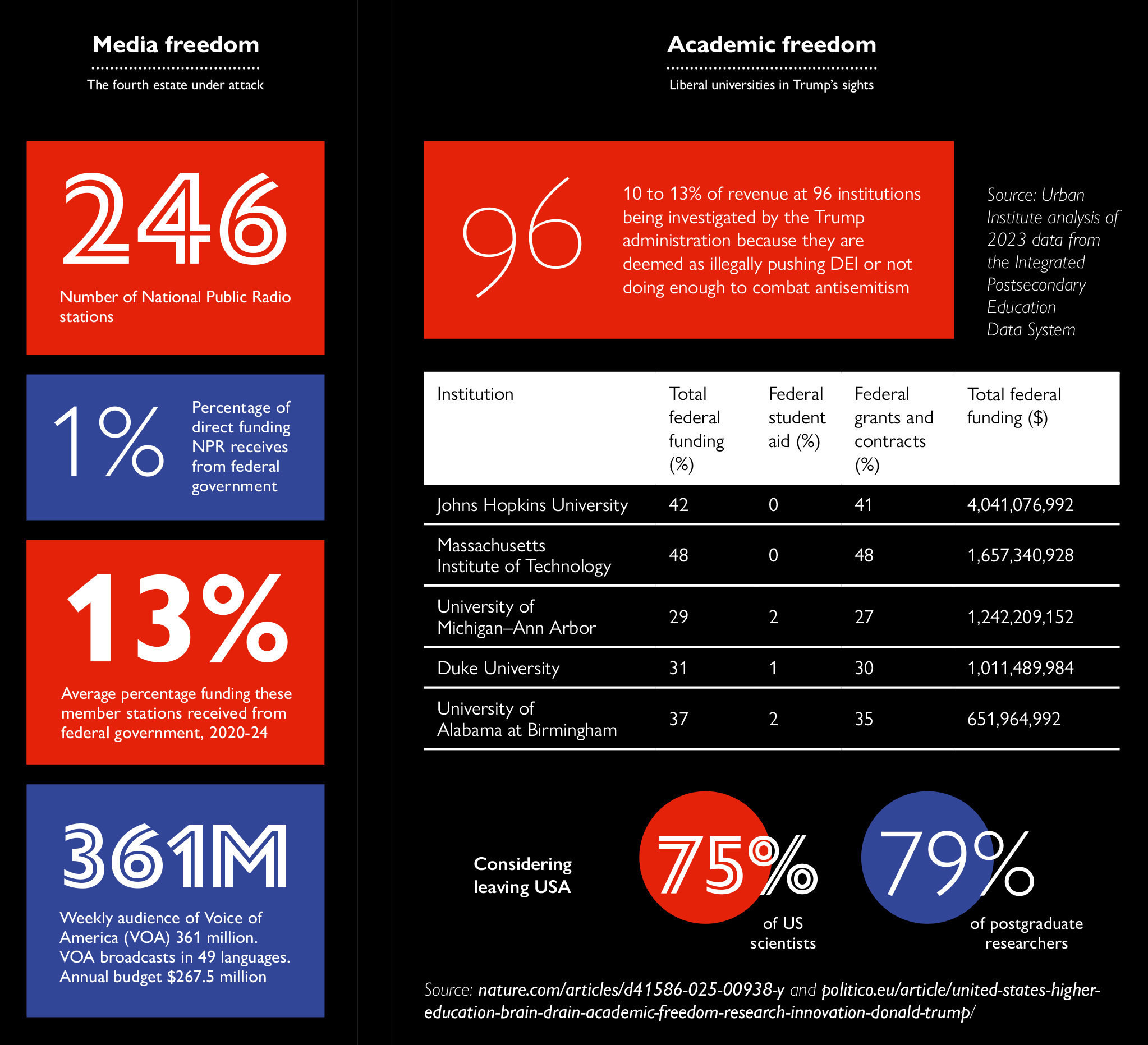19 Sep 2025 | Africa, Europe and Central Asia, Georgia, Israel, Middle East and North Africa, News, Togo, United Kingdom
Bombarded with news from all angles every day, important stories can easily pass us by. To help you cut through the noise, every Friday Index publishes a weekly news roundup of some of the key stories covering censorship and free expression. This week, we look at threats to cut funding for an Israeli film festival and arrests for projecting photographs onto Windsor Castle.
Israeli film festival faces funding cut threat
Israeli Culture Minister Miki Zohar has threatened to cut funding for the country’s national film awards after its top award was won by a movie about a Palestinian boy.
The Sea, written and directed by Israeli director Shai Carmeli-Pollak, won best film at the Ophir Awards, and automatically became Israel’s entry for the best international feature category at next year’s Oscars.
The movie follows the story of a 12-year-old Palestinian boy who attempts to travel from the West Bank to Tel Aviv to see the sea. It received 13 nominations, winning five.
In a post on X, translated from Hebrew, Zohar said: ‘There is no greater slap in the face of Israeli citizens than the embarrassing and detached annual Ophir Awards ceremony. Starting with the 2026 budget, this pathetic ceremony will no longer be funded by taxpayers’ money. Under my watch, Israeli citizens will not pay from their pockets for a ceremony that spits in the faces of our heroic soldiers’
The news comes during boycotts of the Israeli film industry from across Hollywood, with hundreds of actors, directors and producers taking part. The debate even made its way to the Emmy awards this week, with actors such as Javier Bardem vocalising his support for Palestine.
Trump picture on Windsor Castle leads to four arrests
Protest group Led by Donkeys made the news this week with their protest against a state visit to the UK by US President Donald Trump.
Four members of the group were arrested following the projection of images linking Trump to convicted sex offender Jeffery Epstein.
A spokesperson for the group told the Guardian: “We’ve done, I reckon, 25 or 30 projections since we’ve been going. Often the police come along and we have a chat to them, and they even have a laugh with us and occasionally tell us to not do it. But no one’s ever been arrested before, so it is ridiculous that four of our guys have been arrested for malicious communications.”
The protest group has previously taken over a screen at a Reform UK event, placed a large banner depicting a bombed out Gaza across from the London HQ of the Labour party, an action which led to the arrest of two of the organisation’s founders.
The news comes during a crackdown on freedom of speech in the US this week, with Trump initiating a $15 billion lawsuit against the New York Times for publishing a story linking him to Epstein.
The New York Times responded with the following statement: “This lawsuit has no merit. It lacks any legitimate legal claims and instead is an attempt to stifle and discourage independent reporting. The New York Times will not be deterred by intimidation tactics. We will continue to pursue the facts without fear or favor and stand up for journalists’ First Amendment right to ask questions on behalf of the American people.”
Togo’s former defence minister arrested after criticising government
Marguerite Gnakadé, former defence minister in the West African nation of Togo, has been arrested after calling for the end of dynastic rule in the country.
Gnakadé has been a vocal critic of the government, calling for the resignation of the President, and for the military to stand with the people in ending the government’s rule.
Faure Gnassingbé became President of Togo following the death of his father Gnassingbé Eyadéma in 2005, who had been president since 1967. He continued in this role until he became president of the council of ministers, using constitutional amendments to hold on to power, a move that has been met with protests that left at least five people dead.
Togo has a history of repressing dissenting voices, violent repression of protests, the imprisonment of journalists critical to the regime and the 2024 banning of demonstrations organised by political parties.
Politicians in over 50 countries used ant-LGBTQ+ rhetoric during elections
A report from Outright International has found that anti-LGBTQ+ rhetoric has been used by politicians during elections in 51 out of 61 jurisdictions studied.
The NGO, which promotes LGBTQ+ rights, looked at elections worldwide throughout 2024, a year it describes as a ‘super election year’ in which more than 1.5 billion people were eligible to vote, which the NGO described as a “unique opportunity” to assess inclusion in democracies across the globe.
History was also made in 2024 with the election of Sarah McBride, the first trans person to be elected to the US House of Representatives, set against the backdrop of increasing ant-LGBTQ+ rhetoric from members of the country’s Republican party.
In countries such as Georgia laws have been passed to cut down on freedoms for LGBTQ+ people, with the ruling Georgia Dream party banning same-sex marriages and gender-affirming treatments while promoting “traditional family values”.
Alberto de Belaúnde, a director at Outright International,said: “You talk with a politician from Peru … or Hungary or the UK, you start to see common trends and you realise that it’s a global, coordinated and increasingly well-funded effort to diminish LGBTIQ people.”
11 Sep 2025 | Americas, News, United States
In 2013, as part of research for my book on Chinese youth, I sat down with one of the country’s most notorious young nationalists. Rao Jin was known for running a website, then known as Anti-CNN.com, that was against the American 24-hour news network (as a proxy for the West). Ideologically we could not have been further removed. But his views were (and still are) popular and I needed to understand how he arrived at them. We shared tea and despite our differences we spoke calmly. It was very civil.
That word civil is not one we can use right now for the USA, where the murder of Charlie Kirk and the response to it expose just how far we’ve drifted from basic norms of decency. The right-wing influencer and Donald Trump ally was shot and killed, aged 31, while speaking at a university in Utah. He was silenced, literally, though by who and for what reason we can only guess right now.
It was a horrifying display and because some people on social media seem to have no boundaries, I have accidentally seen, when scrolling, the moment it happened. I wish I hadn’t.
Horrifying too has been the commentary. Hours after the shooting, President Trump posted on Truth Social that his “administration will find each and every one of those who contributed to this atrocity and to other political violence” and that the “radical left political violence has hurt too many innocent people”. Trump’s words could be seen as an invitation to retribution. They’re full of assumption – that he was killed by someone from the left who opposed his views – and they’re inaccurate. Claims that violence is a liberal issue, echoed by Elon Musk and many others too since yesterday, are rubbish, a smack in the face of facts. Political violence happens on the extreme edges of the left-right spectrum. It was just two months ago that a Democrat lawmaker and her husband were killed.
The USA has also always been marked by such violence. I have first-hand experience of it. On a visit to LA in 2002 I had to duck behind a bus stop after two men sparred in a queue at Starbucks, leading to one pulling a gun on the other outside. Beyond my own experience are the well-known examples – the Kennedys, Lincoln, Martin Luther King Jr, Huey Long, Harvey Milk – to name just a few.
That said, it’s clear that in today’s USA a violent form of authoritarianism is growing, feeding off an angry, deeply polarised population and aided by lax gun laws. Kirk’s murder is sadly just another piece of the puzzle, something we are trying to understand at Index and to counteract.
While Trump’s comments are terrifying in their implication, the remarks of those who either defended the shooter, diminished the horror or delighted in a form of schadenfreude were very troubling too. It is one thing to call out Kirk for his views. Many were vile and at the limits of what might be considered acceptable speech. It is another to badmouth a man in his dying moments, or after, with the implication being that he got what he deserved. Some have even responded to our post on Bluesky in such a way. It’s strange that I have to say here that Index will never condone violence.
As is the case with Rao Jin, I am sure that if Kirk and I had ever met we’d have vehemently disagreed with one another. Is it so hard though for people to hold two truths at once – that you can abhor someone’s views and abhor their murder too? Is it so hard to listen to people across the spectrum, to use words to counter speech you don’t like, not bullets?
The murder might peel open the USA to expose its fault lines like no other in recent years. It comes in the same week that the country’s leading free speech organisation, Fire, issued their annual report on free speech on campus, in which they said “the atmosphere isn’t just cautious – it’s hostile”. According to the report a majority of students surveyed opposed their college hosting six hypothetical speakers with controversial views and that students of every political persuasion showed “a deep unwillingness to encounter controversial ideas”. There’s a bitter irony here in the report's timing.
The dust will settle on Kirk’s murder. The person behind it, perhaps already arrested, will likely be named. Their motivations will hopefully be aired. Maybe it was nothing to do with his views. As someone speculated on our Bluesky post, “what if he was having an affair with the wife of an army sniper?” Maybe he was.
Still, the broader context and point remains. We have a president in power who is not in favour of free speech for all and whose comments essentially encourage political violence, likely because it is expedient – it makes coming after ideological enemies easier. At the same time we have too many people who condone or downplay violence when it concerns those who they don’t agree with. But violence begets violence. Left unchecked it will come for us all and no one’s views, no matter how confronting, should make us lose sight of that.
25 Jul 2025 | Americas, Europe and Central Asia, News, Russia, United States, Volume 54.02 Summer 2025
This article first appeared in Volume 54, Issue 2 of our print edition of Index on Censorship, titled Land of the Free?: Trump's war on speech at home and abroad, published on 21 July 2025. Read more about the issue here.
On a hot June evening in London’s Bloomsbury earlier this summer, there was standing room only to hear the American historian Benjamin Nathans talk about the Soviet dissident tradition. Perhaps the audience at Pushkin House, the UK’s oldest independent Russian cultural centre, was drawn by the author’s new-found celebrity – the result of the 2025 Pulitzer Prize he has been awarded for his 800-page history of the dissident movement, To the Success of Our Hopeless Cause. Whatever the reason for so many people being there, they were treated to a masterclass in storytelling. After detailing the struggles of a tiny network of writers, scientists and academics against the authoritarian Soviet regime, Nathans turned to the subject of Donald Trump’s America.
“We are in a state of war,” he said. “We are in a state of war with our own government, and this is a war that’s going to last at least several years. The sooner that people understand that, as far as I’m concerned, the better. We need to be on a war footing.”
Nathans is a professor of history at the University of Pennsylvania, an Ivy League institution based in Philadelphia, who has made his reputation through careful and nuanced analysis of Russian and Jewish history. His comments on US politics were delivered in the same calm and measured tone as his answers on Soviet intellectuals in the middle years of the 20th century.
Although “UPenn” is not on the frontline of attacks from the Trump administration, like Harvard and Columbia, it has been threatened with significant funding cuts – a $175 million embargo on research. Its offence? Five years ago, the university allowed the trans athlete Lia Thomas to participate in the women’s swimming team.
Whatever the rights and wrongs of this decision, at the time Thomas met the requirements of the National Collegiate Athletics Association (NCAA) to swim on the women’s team. Nathans elaborated: “So what the White House is essentially saying is, you obey the law five years ago, but we changed the law three months ago, and now we’re going to go after you retroactively for having violated our version of the law.” University of Pennsylvania is suing the government to block this action, but Nathans recognised that the Trump administration has a whole armoury of measures up its sleeve: stripping the university of its nonprofit status, taxing its endowment, or blocking the recruitment of foreign students, to name a few.
Beginning the fightback
Initially shellshocked, those opposed to the attacks on American civil society, including universities, are finally fighting back, said Nathans. “I know a lot of people in Europe have been dismayed at the lack of protest, at least until [14 June] with the ‘No Kings’ Day’, which produced a tremendous turnout in dozens and dozens of American cities. I participated in several quite modest-sized protests against these threatened funding cuts, against the demand by the administration that they have a say in our admissions policy, that they have a say in our hiring policies, things that just so egregiously cross the line of state interference.”
It would seem the global expert on dissidents is himself becoming a dissident in his own land. However, Nathans believes Trump and his allies are not mistaken in their view that American universities are hotbeds of left-liberal thinking.
“The reason why this war started with the Trump administration is that they view American universities as factories that produce Democrats. And they’re not wrong,” he said. In case anyone in the audience doubted him, Nathans repeated himself for emphasis: “They are not wrong. 95% of my department identifies with the Democratic Party. You have to look really hard to find a Republican in the humanities at a place like Penn.
“In general, there is a very clear, powerful correlation between higher education and voting Democratic – the more degrees people get, the more likely they are to vote for a Democratic candidate. Now, correlation is not causation, but as they say in the social sciences, it’s a good place to start.
“Republicans say, you know, why are we giving so much money to these institutions that just produce Democratic voter after Democratic voter? They concluded at some point that we are unreformable, that they cannot break the chokehold that left-of-centre academics have on the Academy.
“And so, what they’re going to do is break the institutions themselves, and that is what they’re trying to do. They’re trying to destroy these institutions so that they can remake them in a very different mould. It’s a war, in other words.”
The end of the Ivy League?
On a slightly more positive note, the historian said he didn’t believe the present US government would succeed in its mission to crush the USA’s elite universities, but he felt it would do a lot of damage on the way.
Intriguingly, there is a strategy at the heart of the dissident movement that may serve those fighting the Trump regime well. In the opening chapters of his book, Nathans describes the thinking of Alexander Esenin-Volpin, an eccentric mathematician and poet, who developed an ingenious method of resistance. For figures like Volpin and those around him, the old ways of the revolutionaries, such as mass demonstrations and underground cells, seemed outdated and associated with the romantic myth-making of the regime they opposed.
Volpin despised the “lingering romance with revolution as the paradigmatic form of historical change”. Instead, he suggested holding the Soviet government to the literal meaning of the 1936 Stalin-era constitution, which guaranteed free expression and open justice. In the 1960s, he developed the concept of the “glasnost meeting”, where people would gather to demand adherence to the law by the authorities. Glasnost translates to “openness” or “transparency”.
This “law-based dissent” was tested first at the glasnost meeting of 5 December 1965 in Pushkin Square, led by Volpin. It was designed symbolically to coincide with Constitution Day under the watchful eye of Russia’s late national poet Alexander Pushkin, the author of Ode to Liberty.
When Nathans was writing the conclusion to his epic work in the summer of 2023, his first thought was how it would carry in translation in Russia. He never imagined that it would take on a resonance in the USA. Now, he believes the parallels are real and that lessons can be learnt: “The dissident legal strategy can serve to highlight the really fundamental role that American courts are playing in resistance to Trump. And it’s a mixed picture, to be sure, but a lot of the imperial overreach that we’re experiencing now from this administration is being pushed back by the courts saying, ‘No, you can’t expel people from the country without due process. No, you can’t withhold money from a university and threaten to take over its hiring procedures’.”
Disdain for the law
The consequences of these judicial rulings are still unclear, and Trump, like his Soviet predecessors, is not overly concerned with obeying the law. But Nathans said there was inspiration to be drawn from law-based dissent along with other dissident strategies. “The legal strategy and the ability to destroy the Soviet government’s monopoly on the flow of information in the form of samizdat (censored and underground publications) and the radio broadcasts that brought it to millions of Soviet listeners – there is an echo of that in the situation in the United States today. It’s the courts and the press that are the front lines.”
It was also possible, said Nathans, that the legalistic approach coupled with a robust media might ultimately prove more effective than a traditional protest movement. “It’s very hard to measure the impact of public protests. The numbers are impressive. The diversity of the crowds is impressive. But how do you translate that into political outcomes? Whereas judicial rulings and the transparency that good journalism forces on a regime, those are things that you can really measure. So, I do think there are lessons to be learned from this story.” Nathans has referred to the “radical civil obedience” of Soviet dissidents and it is not difficult to see the correlation with Trump’s America.
It is no longer fanciful or hyperbolic to characterise Trump as an authoritarian leader. What he hinted at in his first term, he has delivered in his second. In a matter of months, he has dismantled the structures of diversity, equity and inclusion (DEI) within state-funded institutions and thousands of people have been fired from their jobs. Political activists have had their visas revoked and dozens of universities have been investigated.
On the research side, cuts to funding have forced labs to shut down and university departments to lay off staff. There is now a real possibility of a brain drain in American academia. Meanwhile, civil society organisations have faced threats over their tax-exempt status. The crackdown on the media has included the White House taking control of the press pool that covers presidential events, and the defunding of broadcasters such as National Public Radio, Voice of America and Radio Free Europe/Radio Liberty.
Challenging the American state
The concept of the “American dissident” is already gaining currency in intellectual circles. In April 2025, Julia Angwin and Ami Fields-Meyer published a New Yorker weekend essay entitled So You Want to Be a Dissident: A Practical Guide to Courage in Trump’s Age of Fear. Angwin, a respected investigative journalist and Fields-Meyer, a White House senior policy adviser from 2021 to 2024, warned that “the consequences of challenging the state seem to increasingly carry real danger”. While recognising that there had always been retribution for those who took on the American state, this felt different.
“The fear now is different in kind,” they said. “The sweeping scope of Trump’s appetite for institutionalised retaliation has changed the threat landscape for everyone, almost overnight. In a country with a centuries-long culture of free expression, the punishments for those who express even the slightest opposition to the administration have been a shock to the American system.”
Angwin and Fields-Meyer also cited To the Success of Our Hopeless Cause and Nathans’ concept of “radical civil obedience” as a potential source of inspiration for Trump’s opposition. “An affirmative vision of what the world should be is the inspiration for many of those who, in these tempestuous early months of Trump 2.0, have taken meaningful risks – acts of American dissent.”
In December 2024, four months after Nathans’ book was published, The Atlantic staff writer Gal Beckerman was quick to recognise its saliency for contemporary America. In an article entitled A Mindset for Trump’s America, Beckerman picked up on another dissident strategy expressed best by Andrei Amalrik, the author best known for his provocative 1970 essay Will the Soviet Union Survive Until 1984? Writing later of his fellow dissidents, Amalrik said:
“They did something simple to the point of genius. In an unfree country, they began to conduct themselves like free people.”
Never normalise
Ultimately, the dissident mindset is the radical refusal to accept institutional untruth. It is the denial of denial. Whether embodied in Václav Havel, the former dissident who became President of Czechoslovakia, or Alexei Navalny, who died at the hands of Vladimir Putin’s neo-Stalinist regime, dissidents are people who, like George Washington, cannot tell a lie.
“What dissidents teach us is not to normalise,” said Beckerman. “Just look at the Republican Party’s radically shifting attitudes about Trump to understand how easily this can happen. Leaders who were once worried enough to publicly call the former and future president out as a ‘reprehensible’ (JD Vance) ‘con artist’ (Marco Rubio) who had ‘discredited the American experiment with self-governance’ (Robert F Kennedy Jr) are now his closest advisers and legitimisers.”
To the Success of Our Hopeless Cause has taken on an almost mythic status in Trump’s America and its author rightly won the Pushkin House Book Prize, which celebrates the best non-fiction writing in English on Russia, to go with the Pulitzer Prize.
The title of Nathans’ book is a reference to the ironic toast dissidents made to each other in the dark days of the Cold War. The American dissident cause must sometimes seem equally hopeless in the face of the USA’s first authoritarian president. Donald Trump has often been described as a “pathological liar”. It is entirely appropriate then that his opponents should take inspiration from Alexander Esenin-Volpin, the man who the great Russian dissident and fierce Putin critic Vladimir Bukovsky described as “pathologically honest”.




